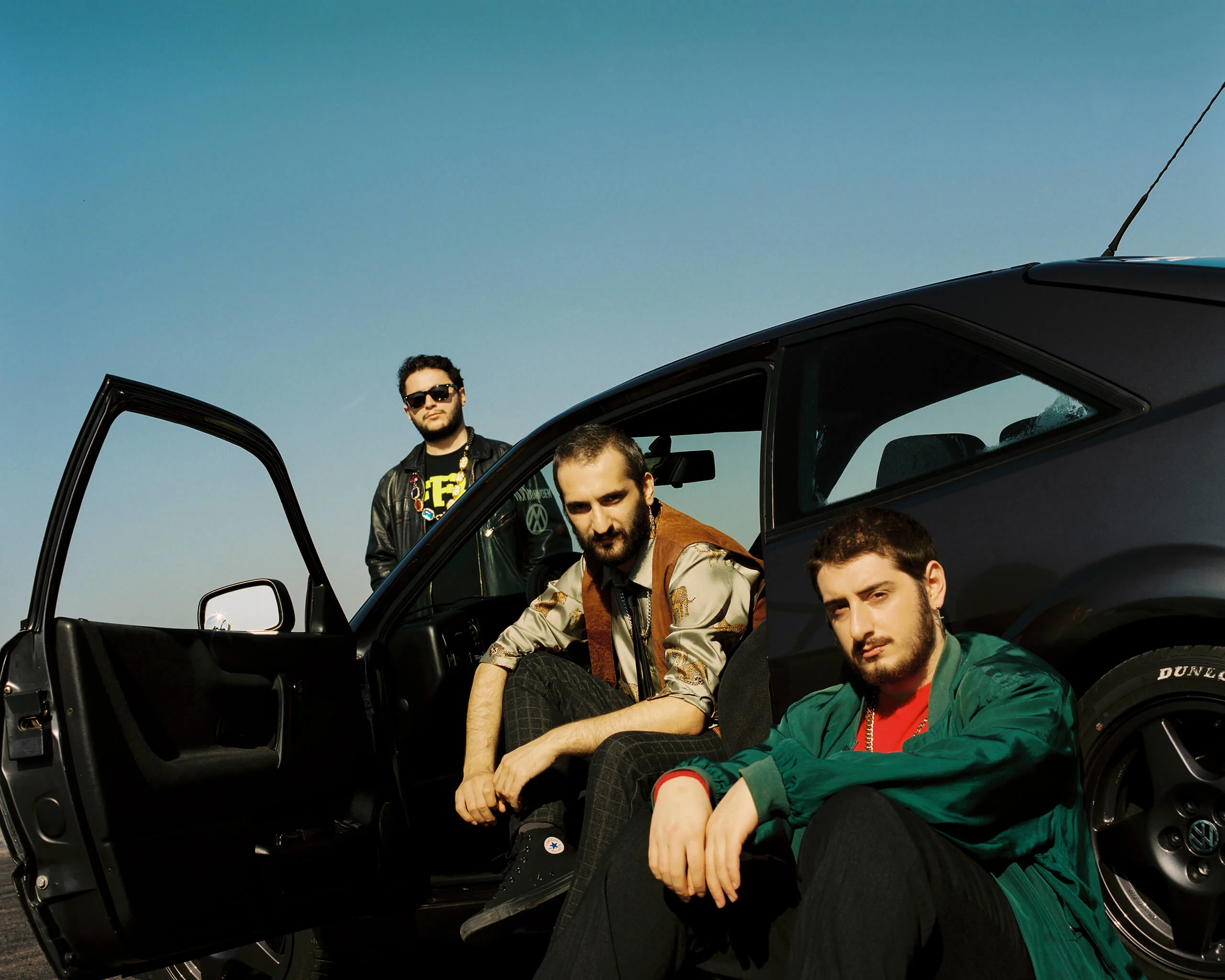
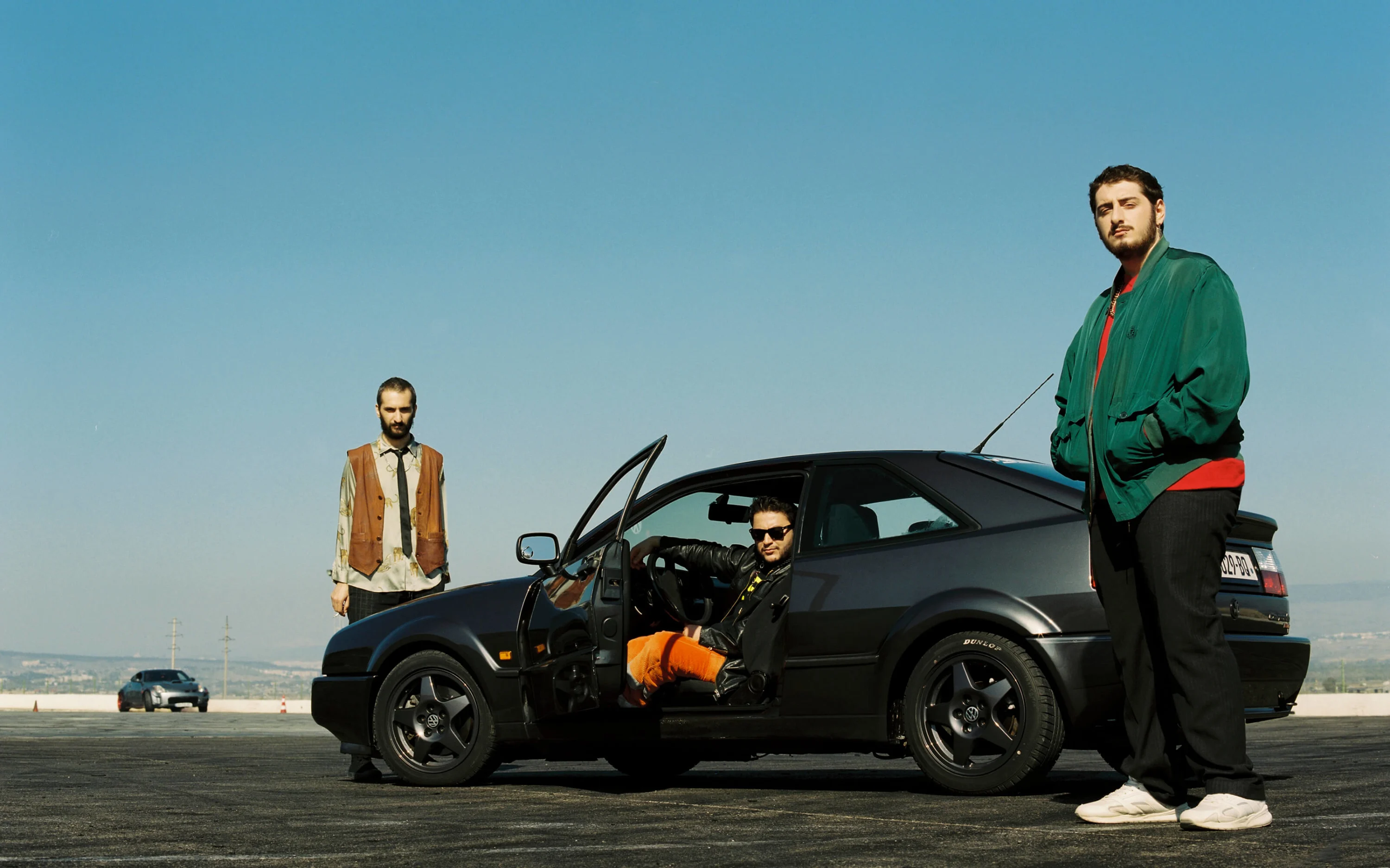
Four-piece band Killages is part of the new wave of Georgian musicians who have been breaking through in the last ten years, and with largely western influences and English lyrics, they’re beginning to garner mainstream appeal. Here, they tell Selim Bulut that, although they’re over the moon with their following in their home nation, the dream is to break the US, go global, and, one day, to be in the Grammy conversation.
Photography by Ika Khargelia.
There are two meanings behind the band name Killages. A compound of “kill” and “ages,” it describes both the Georgian group’s reason for existing in the first place—to kill time—and the motto they live by, to kill ageing, or “to feel young even when we’re old,” as frontman, MC, and main lyricist Guga Macharashvili puts it.
This live-for-the-day spirit has brought Killages a devoted audience that’s slowly expanding beyond the borders of their native country. The band formed just four years ago in Rustavi, a city 16 miles out from the Georgian capital of Tbilisi, and after winning a competition that year called Newcomer 2017, they started to build a national following. Their early songs, ON/OFF and Run, have gained millions of YouTube streams, and if you scroll down to the comments, you’ll see wave upon wave of messages of support written in Georgian script. There are plenty of bands with streaming hits under their belts nowadays, of course, but they rarely hail from a country where Spotify only just launched this year.
We just want to feel young even when we’re old.
While Killages’ early releases merged rock, pop, indie, funk, and hip-hop together, their more recent music has seen them settle into more of a rap sound. They cite two artists in particular as important for shaping this sound: Kendrick Lamar and Isaiah Rashad. On Original Brothers, the crowd-funded album Killages released at the end of 2020, there’s more rapping than singing, while the production is full of knocking kicks and twisting hi-hats, but you can still hear their melodic songwriting on title track Original Brothers, or on Bottle SIP, which was nominated for Track of the Year at Electronauts, one of the country’s music award ceremonies. “Our sound is sometimes melancholic, sometimes aggressive, energetic, or melodic—we don’t like to put ourselves in any one box,” says Guga. Anri Kavelashvili, the group’s guitarist, producer, and mixer, adds: “We’re always trying to create something new. Killages isn’t a rock band or pop band anymore. It’s a collective.”
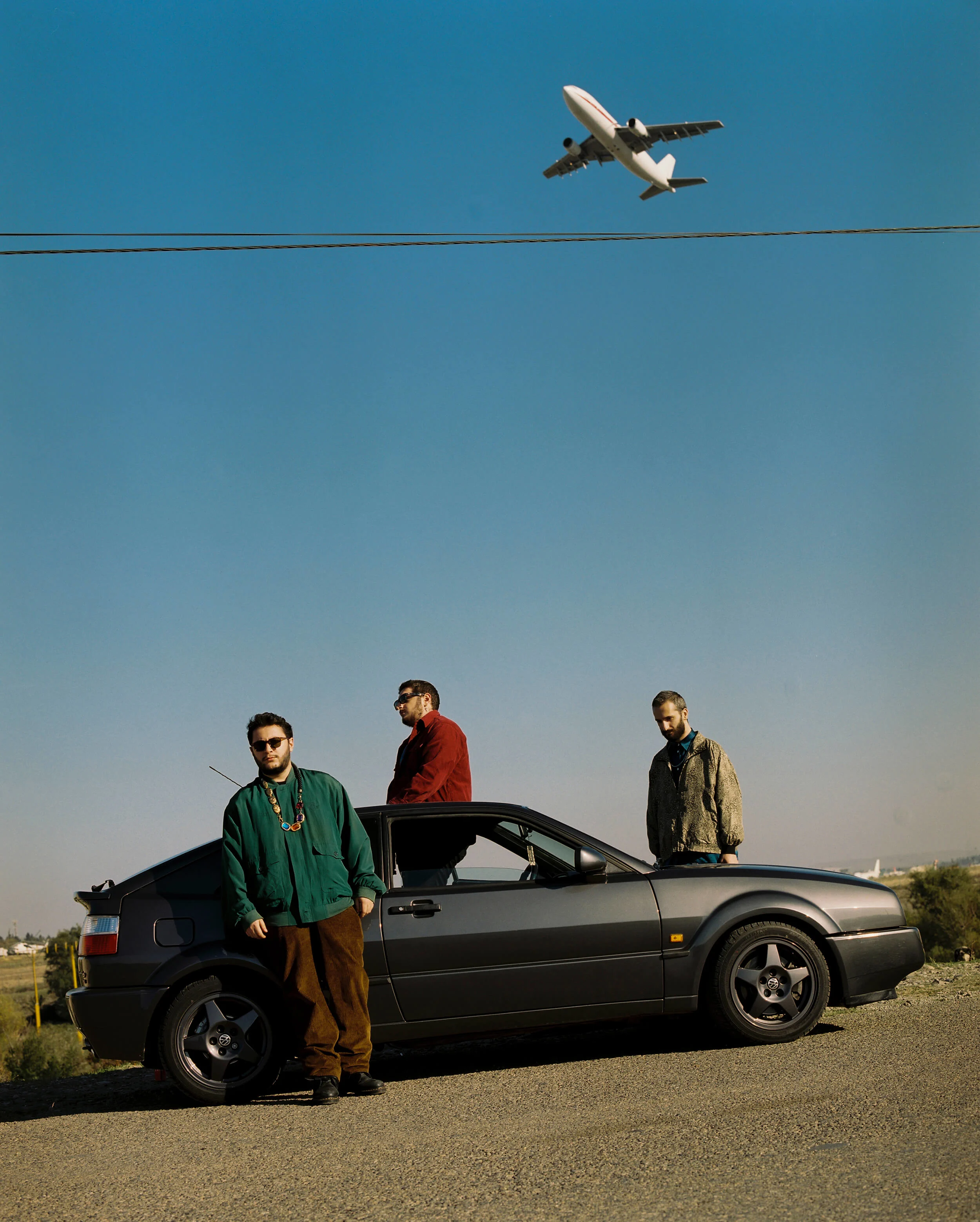
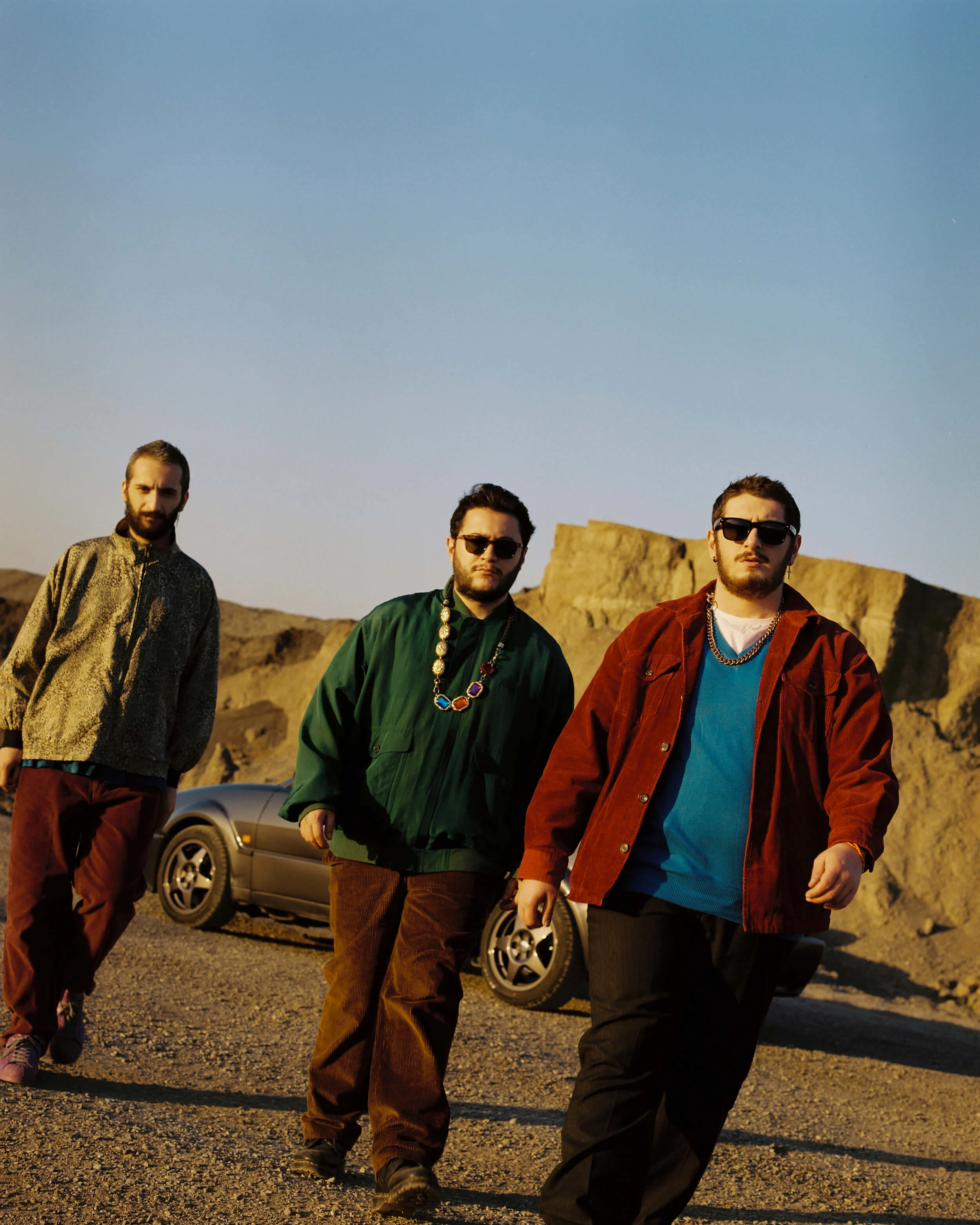
Throughout the 1980s, Rustavi was home to a steadfast underground music scene, but from the 1990s until the start of the 2010s, Georgia experienced a number of conflicts, including a civil war. The music industry understandably suffered, leaving little infrastructure in place to help artists find an audience outside the country’s borders. That’s changed over the past decade. Not only is a lot of Soviet-era music being rediscovered by independent reissue labels, there is a new generation of artists building something new—Tbilisi is regarded as a techno mecca with its Bassiani nightclub, while Georgia’s wider independent rap scene is flourishing.
Killages respect this homegrown talent, but they’re personally more influenced by western rock and pop artists, from the Beatles and Rolling Stones to Radiohead and Oasis, as well as newer acts like Twenty One Pilots. The band is made up of four members, who all use stage names: besides Guga (A.K.A. Gugamchr) and Anri (Anrihudson), there’s bassist Giorgi Liparteliani (Lipo) and drummer Rati Ratiani (Softwood). They were playing in different groups when they met at Rustavi’s Imagine Club, a local rock bar named after the John Lennon song, but decided to form a band together based on their shared ambitions.
Recording studios were expensive in Georgia, and rehearsal spaces in Rustavi particularly hard to come by, so they ended up producing music at home instead—a DIY discovery that led to the band broadening out their sound beyond their initial rock inspirations. “Nowadays, our production is one laptop, one speaker, and we’re doing this electronic stuff at home,” says Anri.
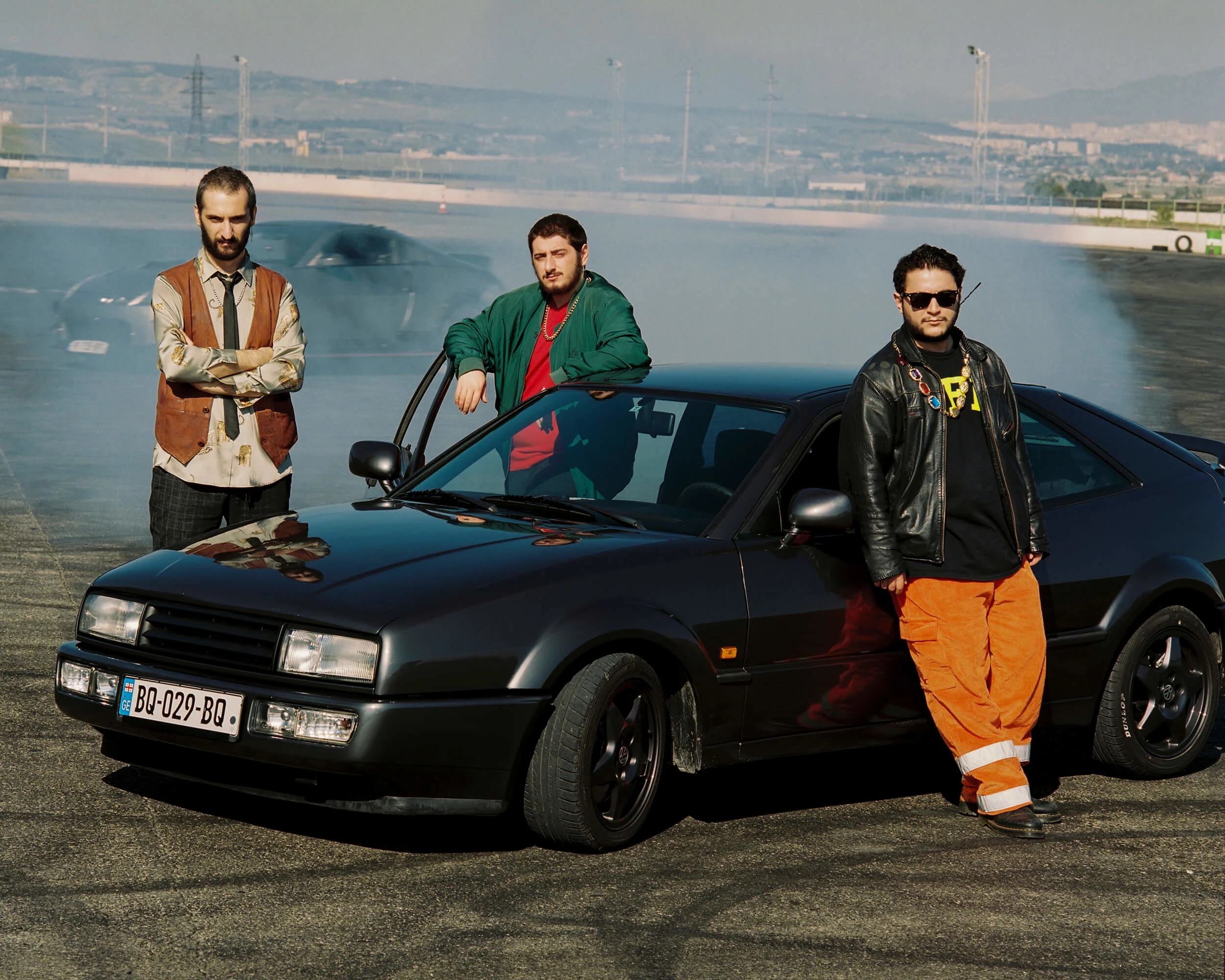
We’ve found that mixing Georgian and English lyrics together is beautiful.
Killages’ vocals are, for the most part, recorded in English, although they have laid down some unreleased tracks in Georgian, too. On one level, using English is part of Killages’ pitch for more popular audiences, but it’s also down to the difficulty they encounter in singing or rapping in their own tongue. “Georgian is our native language, and it’s really harsh with so many consonants,” says Guga. “On top of that, we think and speak in Georgian, but it’s hard to transfer our thoughts onto paper because it has to be perfect with rhymes and alphabetical compounds. However, we’ve found that the best way for us to write in our native language is by mixing Georgian and English lyrics together, and in our opinion it’s beautiful and more intelligible for Georgian listeners.”
Anri praises the Tbilisi rap duo KayaKata (whose background is more underground, unlike Killages’ more mainstream appeal) for their use of the language, but adds that Killages could never compare. “No one can do the Georgian language like these guys!” he says. “When we heard them we knew we were going to do English instead.” Even in English, though, Guga says that their music has connected with people due to the authenticity of its lyrical content. “Original Brothers is a very emotional album for me,” he says. “It’s all about the past, and about friends, and the city we live in and the life we’re living.”
With the ongoing pandemic, Killages haven’t had as many chances to perform Original Brothers as they’d like, either inside or outside of Georgia, but they hope to find more ways for people to hear their upcoming music in the future. They’re in the process of collaborating with two American artists, and they hope to release a three-track EP, which would include some of their Georgian language tracks, before 2021 is out. “Original Brothers is deep; this EP is lighter than that,” Guga says of their new music.
If all goes to plan, they’re one step closer to fulfilling the dream that’s shared by all four members of the group: to play in the USA, and to eventually win a Grammy. And why not? If Korean boy bands and Latin rap stars can find a place at a major award ceremony, then surely a Georgian rap collective can do, too. Guga’s mission is clear: “We want to go global.”
